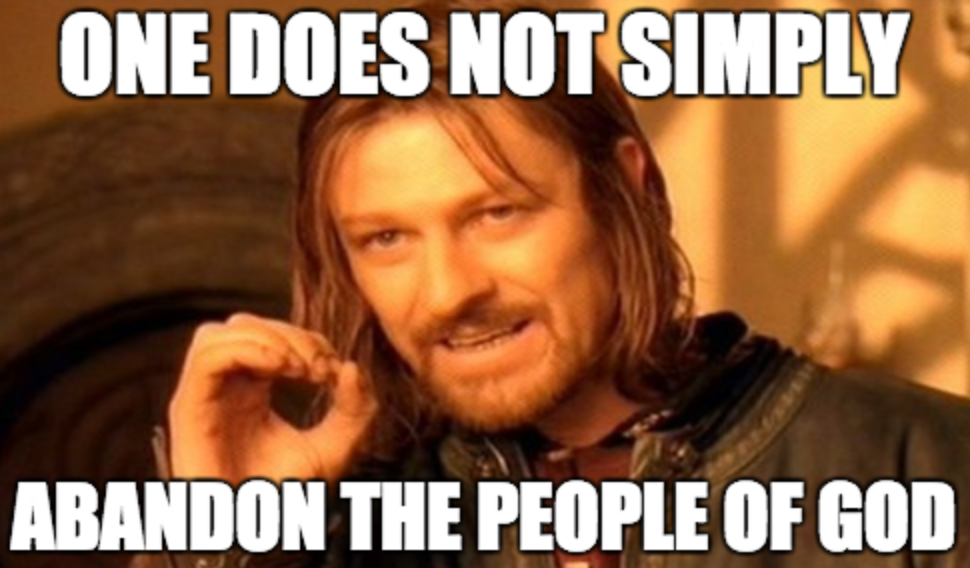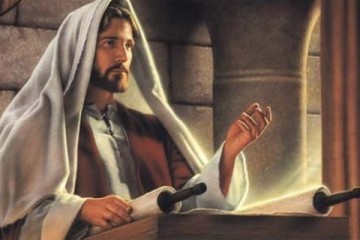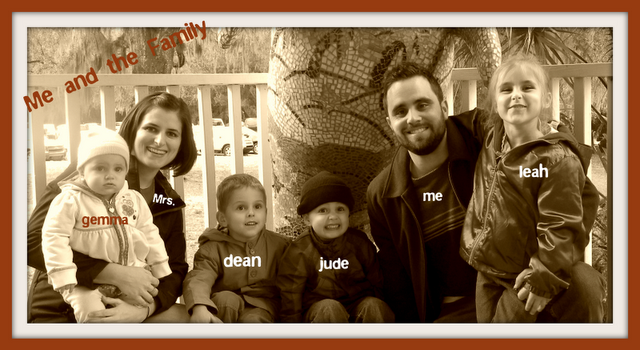The Issue of Authority in Early Christianity
 Here’s Dr. Kenneth Howell speaking about the issue of authority in the Early Church:
Here’s Dr. Kenneth Howell speaking about the issue of authority in the Early Church:
"We are travellers…not yet in our native land" – St. Augustine
 Here’s Dr. Kenneth Howell speaking about the issue of authority in the Early Church:
Here’s Dr. Kenneth Howell speaking about the issue of authority in the Early Church:


We now come to the final chapter of Book II! In this chapter, C.S. Lewis draws to a conclusion “What Christians believe”. In previous chapters, Jack has explained that we receive New Life from Christ. In this final chapter he looks at how it is communicated to us. He principally focuses on belief, Baptism and Holy Communion.
If you enjoy this episode, you can subscribe manually, or any place where good podcasts can be found (iTunes, Google Play, Podbean, Stitcher and TuneIn). Please send any objections, comments or questions, either via email through my website or tweet us @pintswithjack.
Episode 12: “The Practical Conclusion” (Download)
Audio Player
 One of my favourite things about having a blog is that, every now and then, I’ll get an email out of the blue from someone I don’t know. I love getting emails from people I’ve never met. There’s something quite wonderful in having an interaction with someone from across the continent or even the world, all because of something you’ve written!
One of my favourite things about having a blog is that, every now and then, I’ll get an email out of the blue from someone I don’t know. I love getting emails from people I’ve never met. There’s something quite wonderful in having an interaction with someone from across the continent or even the world, all because of something you’ve written!
Very often when I get emails they contain questions of an apologetics nature. I’m trying to get better at converting these email exchanges into posts. So, in light of that, I would like to share a response I gave to an email I received a few weeks ago. The gentleman asked the following question:
While discussing Christ’s establishment of the Sacrament of Reconciliation, I brought up John 20:21-23. My Protestant friends said that this is Jesus’ way of warning everyone not to hold a grudge against someone by retaining their sin. I know what Jesus was doing here, but I lack the bomb-proof Catholic response to this interpretation; can you help?
I’m not sure if my response qualifies as “bomb-proof”, but here was my reply…
Today’s “Quick Apology” comes from a conversation a friend of mine recently had with a Reformed Protestant. It’s actually a bit of a long response for a “Quick” apology, but oh well…
“I’ll concede that the case for the historical church being the Catholic church is very strong. However, the chosen people (the Israelites) were consistently disobeying God throughout history and eventually ended up crucifying Christ. Throughout history the chosen people abandoned God. What makes you think that the Catholic Church hasn’t done this or won’t do this?”
Here, the Protestant is admitting to many of the claims of the Catholic Church, but appears to be challenging the Church’s continued status as Christ’s Church, as well as calling into question her continued authority.
It must first obviously be admitted that sinners are found in the Catholic Church. After all, why else do you think I’m allowed membership?!. However, a few points should be made…
Israel certainly sinned over the course of Salvation History. However, would it mean that because of this, it would be better for a Jew or Gentile to abandon God’s people and “go it alone”? Of course not! If one left Judaism, thinking that this couldn’t possibly be the true religion due to the hypocrisy of some of their rulers and many its followers, then one would be making a huge mistake!
As Saint Paul said, “…to them belong the sonship, the glory, the covenants, the giving of the law, the worship, and the promises; to them belong the patriarchs“ (Romans 9:4-5). The Lord had given to Israel many wonderful gifts for the sake of salvation. It would be crazy to reject these gifts and walk away!
However, we actually have an example in the Old Testament of when some members of Israel did just that. After King Solomon’s death, his son ascended to the throne (1 Kings 12) who was a complete tyrant. The northern tribes refused to follow him and this resulted in the division of the Kingdom: the Kingdom of Israel in the north and the Kingdom of Judea in the south. This separatist movement received the condemnation of the prophets. Not only had they abandoned their rightful king, they had cut themselves off from the priesthood, the Temple and the sacrifices.

 In our First Reading, Moses promises that a prophet will come after him, someone who will guide Israel. In the light of the New Testament, we recognize this person to be Jesus Christ who, in this Sunday’s Gospel Reading, not only teaches with authority, but demonstrates that authority by casting out an unclean spirit.
In our First Reading, Moses promises that a prophet will come after him, someone who will guide Israel. In the light of the New Testament, we recognize this person to be Jesus Christ who, in this Sunday’s Gospel Reading, not only teaches with authority, but demonstrates that authority by casting out an unclean spirit.
The psalmist in this Sunday’s psalm sings “Oh, that today you would hear his voice…harden not your hearts”. That is our invitation this Sunday. We are invited to come and listen to the voice of the Lord. The word of God is powerful indeed. If we come to the Scriptures with open hearts they have the power to transform our lives….
I’ve given Brent a bit of hard time recently over on Devin’s blog so I thought this week’s quotation should come from him.

This is something great I heard him say during his episode on “The Journey Home”…
“An authority is only as good as its ability to resolve a conflict” – Brent Stubbs
Okay, now go listen to his new podcast with Devin!